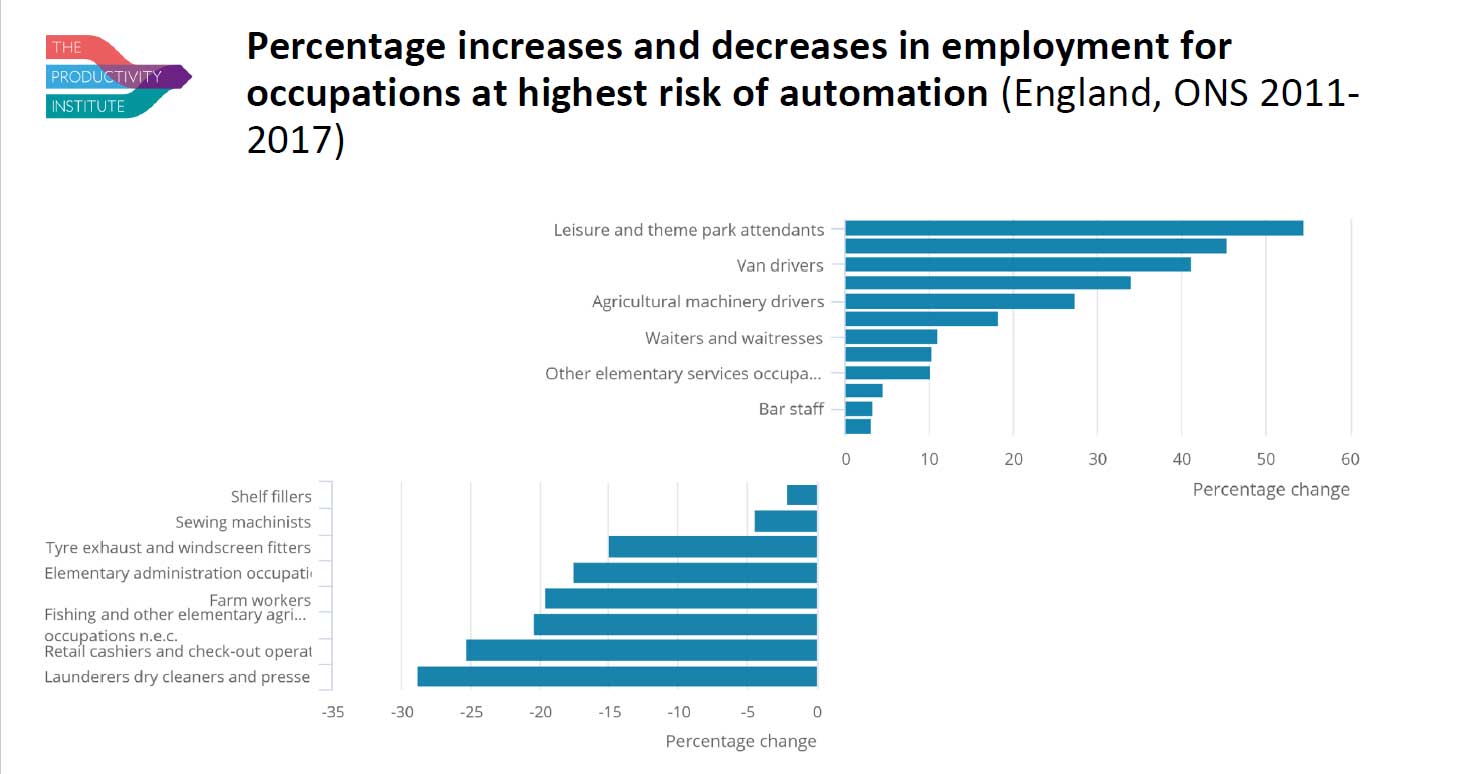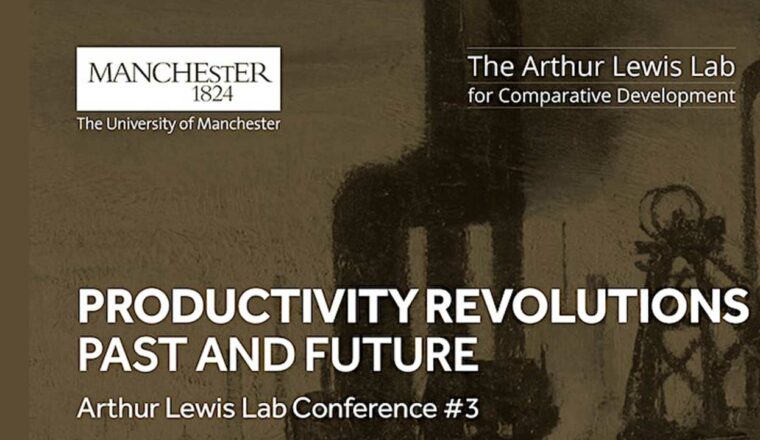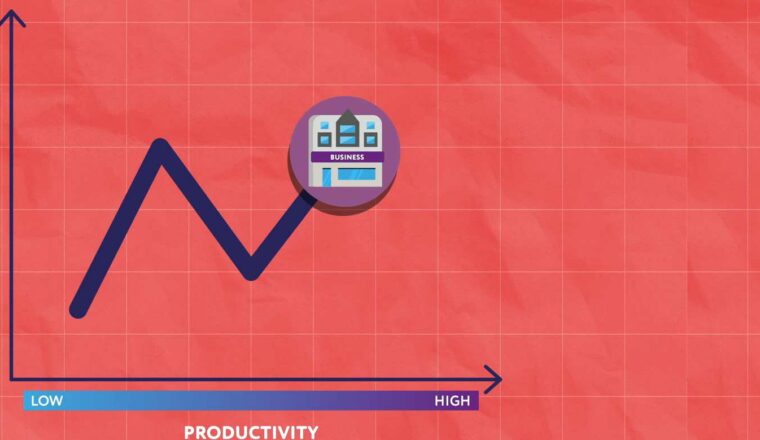Further education colleges key to strengthen business innovation
How can further education colleges develop curriculums that best contribute to strengthening business innovation and improve productivity in their communities?
Professors Tim Vorley, Andy Westwood, Damian Grimshaw and Ewart Keep joined managing director Bart van Ark from The Productivity Institute (TPI) joined Chief Executive of the Association of Colleges (AoC) David Hughes to discuss these issues in the webinar – “How colleges can strengthen business innovation and improve productivity in local communities.”
Is automation replacing jobs?
Around 10-15 years ago, studies and news reports showed that new technology was indeed replacing jobs, said Professor Grimshaw, from King’s College, London. However think tanks and economists have since shown that there are other factors involved – some repetitive responsibilities within jobs may be replaced by technology, whereas more interactive tasks are less likely to become automated.
ONS statistics in 2017 showed that just 7% of the UK workforce were at high risk of being replaced by new technology.

This graph shows jobs that are currently at risk, including the percentage increases and decreases in unemployment particularly for bar staff jobs, shelf fillers and sewing machinists. Age groups including those 20-24 and 60-65 are also at high risk, particularly women as they are more likely work part time in these type of jobs.
Therefore the question posed by Further Education (FE) colleges from this data is how can they contribute to strengthening business innovation and improving productivity for these sectors of the population?
The role of innovation
Professor Ewert Keep from the University of Oxford delved into the role of innovation during his presentation. He said most businesses think of innovation as new inventions like graphene, but this way of thinking was very limited.
In the UK there are 60,000 firms that claim tax credits for research and development. The other 98% of firms do not claim at all because they are not focusing on research and development.
Supporting these companies by encouraging them to take part in more research and development and thinking about innovation on a broader level could be critical to productivity and therefore should be a main focus for FE colleges.
Professor Tim Vorley of Oxford Brookes Business School said the focus should not always be on new start-ups, however. Colleges shouldn’t just be think tanks for new businesses when many older businesses needed this agenda – not just on the skills front but on business transformation and new models.
These companies brought income to their areas and were therefore essential to contributing to society and productivity in their regions. However funding was essential for this to happen and eventually close the gap in productivity between the UK and other European countries.
An unexpected boost
As the pandemic continues to provide increases in UK productivity due to rising investment in new technologies and machinery, FE Colleges could help businesses hang on to these changes and build on them further.
Funding and ensuring the colleges’ role in productivity is understood is key for our economy. AoC Chief Executive David Hughes asked Professor Andy Westwood of the University of Manchester how this could be best understood across central government.
Professor Westwood believed the AoC’s relationships with TPI and other research organisations would be crucial to help with this. Working together was key to driving productivity, enabling businesses to increase wages for workers and ultimately boost living standards. Higher productivity also increased government resources to improve public services or cut taxes.
FE colleges could play a huge role in this and support TPI in exploring what productivity growth means for business, workers and communities.
This blog is based on the AoC webinar “How colleges can strengthen business innovation and improve productivity in local communities” held on 19 May 2021.



